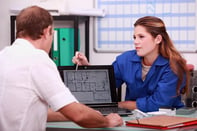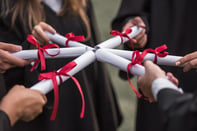Published on
Bringing Town and Gown Together: Best Practices for Connecting with the Community

All universities and colleges are an important presence in their local community, some in many local communities, and some in only one. The relationship with the community is a force for good on both sides, helping the community, helping the students and the faculty. To have that positive relationship requires long-term relationship building and adherence to certain principles, which we outline here.
Universities and colleges have many of the aspects of businesses in the community. One consequence of the business aspect is that universities and colleges should participate in the Chambers of Commerce for each community location. Like other businesses, they can listen and help with community-based projects as they are discussed. But more important, it helps to forge and sustain the relationship among people, between people in the community—in other businesses, government and nonprofit entities—and leaders at the university and college. There should be a long-term regular relationship. Attending meetings regularly, making presentations on activities in the university/college that fit within the topics covered in meetings, getting to know all the people and understanding how activities overlap; all of this comes from attending Chambers of Commerce meetings.
All universities/colleges also have other relationships with their communities sometimes structured by government entities. Public universities/colleges may not pay property tax for example, as they are publically owned. Some often question this. But the university/college brings students, parents and employees to the community who pay taxes.
There is often concern about students being housed in the community. There are structures that are in place to monitor student behavior in community, patrolling by police in the community or police from the university/college, or a combination. This is another case where working together continuously makes the best solution. If there is an incident, people on all sides already know each other and are familiar with each other, and so accusations do not escalate, and any problems are dealt with jointly. Scheduling and holding regular meetings with police leaders is a good practice.
Events on city streets near the university/college are another potential source of friction that can be dealt with by regular meetings. What events require university/college access to city streets and what dates work well for the local community? Big events like concerts and sports events can be planned ahead jointly and bear significant benefits for both the community and the institution. Often, a schedule is established years in advance jointly by community and institutional leaders.
One complex relationship is often the expectation for money to change hands. The community should not be funding university/college events, and the university/college should not be funding community events. Events can be done together where each contribute. A Day of Helping or Giving is one common joint effort that communities and universities/colleges share. Community members and student and faculty all work together either on a common chose project for a Day of Helping, or many projects under a common banner. The community and the university/college motivate each other and become closer as a result. Working together to achieve things is a wonderful way to foster community outreach and relationships, and ideas for projects can come from Chamber of Commerce meetings, based on community needs and university/college abilities.
When it comes to participation in local events, universities/colleges should avoid taking political sides. If there if a political agenda the university/college must be neutral. The university/college as an entity cannot take political sides because in the long run, this will often lead to disruption and strife.
After good relations are established with all local community groups, and people know each other and work well together, they can plan to get ahead of the game. What unique contribution can the university/college make in any of the communities varies by their campuses. How can that influence the academic programs, many of which do not require service learning? How can internships and practica and research projects be linked to community agencies? Projects from community business can serve as the basis for service learning, or for actual internships credit which can lead to direct pathways for students to getting jobs in the community. Designing research incubators where problems from the local community serve as the basis for designs by students helps community and student, and potentially yields new businesses. On a broader scale, a university/college can lend its expertise and experience to broader community and regional planning for the future.
A university/college brings a presence to the community unlike any other. While its faculty and other employees are citizens of the community in every sense, they are often connected to a global community via their profession, putting the community on a world map, and bringing worldwide visitors to the community. A university/college helps stretch the reach of local public schools via direct interaction and expectation. Research universities often result in local spin-off businesses in the community. A university/college promotes education and professionalism in the community via its presence and participation. Done properly, it is a win-win opportunity.
Author Perspective: Administrator



